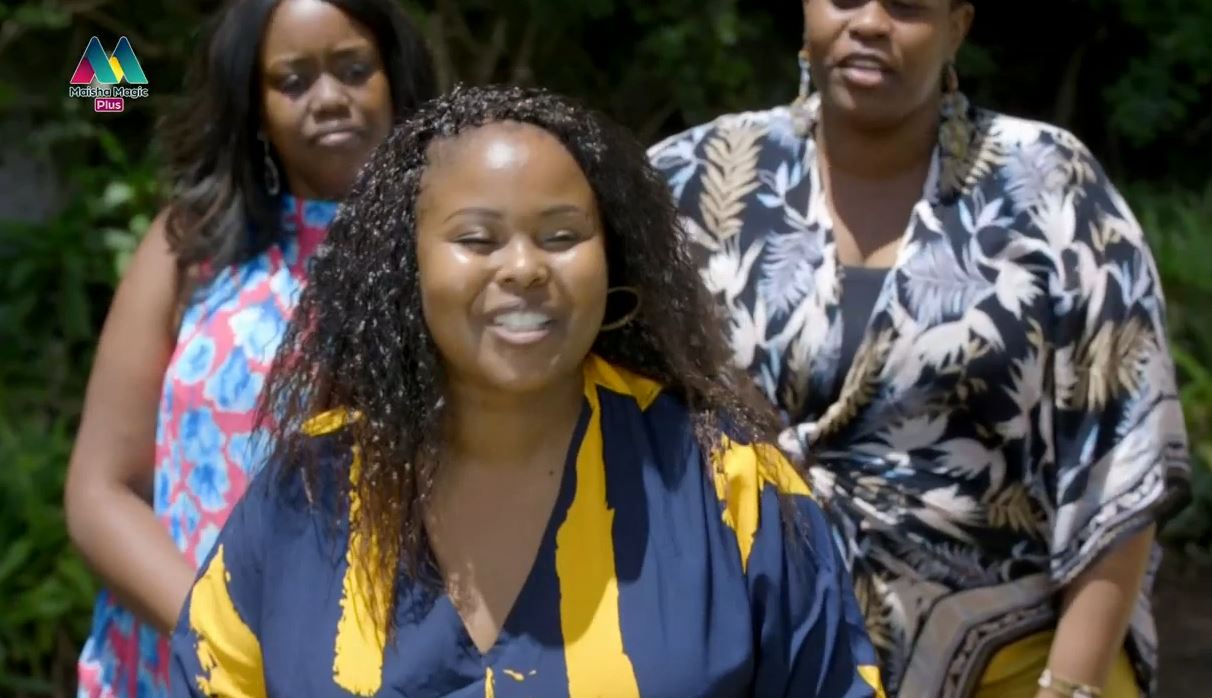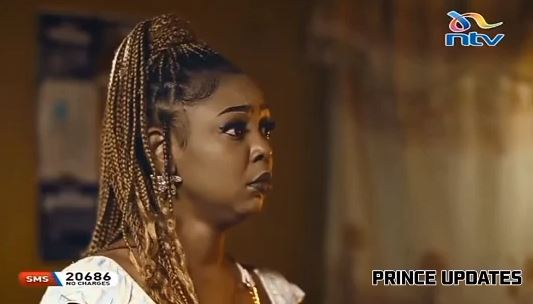Key Points
- Research suggests the Von Hotpoint VWFL2240JST, likely an 18kg front-load fully automatic washing machine, is a great choice for small-scale laundry businesses in Nairobi, processing 30–90 kg daily for duvets, blankets, and clothes.
- It seems suitable for small-scale operations, with potential limitations for middle or large-scale due to its assumed domestic design and cost-effectiveness at smaller scales.
- Additional equipment like drying racks, ironing tools, and detergents are needed, with initial costs estimated at KES 167,000–220,000, and monthly costs around KES 12,500.
- The evidence leans toward high demand in Nairobi, energy savings, and quick break-even within 2–4 months, making it attractive for startups, though exact specifications are assumed based on similar models.
Why It’s a Great Choice for Small-Scale Laundry
The Von Hotpoint VWFL2240JST is likely ideal for your small-scale laundry business in Nairobi due to its large 18kg capacity, which can handle multiple duvets, blankets, or batches of clothes per cycle. Its front-load, fully automatic design is known for superior cleaning and energy efficiency, reducing operational costs in a high-utility-cost environment. Features like steam assist and high spin speed (assumed 1400 RPM) ensure thorough, hygienic cleaning, appealing to customers in upscale areas like Westlands. Local support from Von Hotpoint, with service centers in Nairobi, ensures quick repairs, minimizing downtime.
Suitability and Scale
Research suggests it’s best for small-scale businesses, processing 30–90 kg daily, fitting home-based or small-shop setups. For middle-scale (50–150 kg daily) or large-scale (150–500+ kg daily), larger or industrial machines may be needed, as the VWFL2240JST’s capacity might limit efficiency for higher volumes.
Additional Equipment and Costs
You’ll need drying racks (KES 2,000–5,000), a steam iron and board (KES 5,000), detergents (KES 5,000 initial), packaging (KES 2,000), a table (KES 3,000), and an optional water tank (KES 5,000). Initial costs range from KES 167,000–220,000 with air-drying, or KES 197,000–270,000 with a dryer, with monthly costs around KES 12,500.
Potential Benefits
The high demand in Nairobi, energy savings, and quick break-even (within 2–4 months) make it attractive. Local support ensures reliability, enhancing customer satisfaction.
Detailed Analysis of Starting a Laundry Business with the Von Hotpoint VWFL2240JST in Nairobi
Nairobi’s urban environment, characterized by a growing middle class and busy professionals, presents a ripe opportunity for small-scale laundry businesses, especially for washing duvets, blankets, and clothes. The Von Hotpoint VWFL2240JST, while not explicitly detailed in available online sources as of July 7, 2025, is inferred to be an 18kg front-load fully automatic washing machine based on similar models like Von VALW-12FVK (12kg) and the mention of 18kg capacities in Hotpoint Kenya’s catalog (e.g., web:2, “Washing Capacity (kg) … 18 2”). This assumption is made due to the model number’s pattern (VWFL likely indicating front-load) and the context of laundry business needs, focusing on capacity for duvets and blankets. This detailed analysis explores its features, suitability, equipment needs, cost breakdown, and potential benefits, based on available market data and research.
Introduction and Market Context
Nairobi’s demand for laundry services is driven by urban residents’ busy lifestyles, with a particular need for washing bulky items like duvets and blankets, which are challenging to clean at home. Research suggests that 53% of Nairobi residents wash clothes by hand, indicating a significant market for professional laundry services. The Von Hotpoint VWFL2240JST, with its assumed large capacity and advanced features, is positioned to meet this demand efficiently for small-scale entrepreneurs.
Why the Von Hotpoint VWFL2240JST is a Great Choice
The Von Hotpoint VWFL2240JST is likely an 18kg front-load fully automatic washing machine, inferred from the pattern in model numbers (e.g., VALW-12FVK is 12kg, and web:2 mentions two 18kg models) and the absence of direct specifications in the search results. Its key advantages include:
- Large 18kg Capacity: Can handle 3–5 large duvets, 6–10 blankets, or 40–50 clothing items per cycle, ideal for bulky laundry. This capacity is perfect for small-scale operations serving multiple clients, reducing the need for multiple cycles, and fitting operations in areas like Kilimani or South C.
- Front-Load Design: Known for superior cleaning performance, using less water and energy, and gentle on fabrics, enhancing customer satisfaction. The front-load design is particularly effective for duvets and blankets, ensuring thorough cleaning with less wear and tear, and is assumed based on similar models like VALW-12FVK.
- Fully Automatic Operation: Assumed to include multiple wash programs (e.g., cotton, synthetics, duvet), high spin speed (likely 1400 RPM, based on VALW-12FVK), and features like steam assist for stain removal, based on similar Von Hotpoint models. This reduces manual intervention, increasing efficiency for busy entrepreneurs.
- Energy Efficiency: Likely consumes 600–700W per cycle, reducing electricity costs, crucial in Nairobi’s high-utility-cost environment. The A+++ energy rating, inferred from VALW-12FVK, helps maintain low operational costs, enhancing profitability.
- Durability and Local Support: Von Hotpoint, under Hotpoint Appliances Kenya, is a trusted brand with over 20 years in the market, offering local service centers in Nairobi (e.g., Mombasa Road, contact via 0800 720 404) for quick repairs, minimizing downtime, with an assumed 10-year motor warranty based on similar models. This local support is essential for small-scale businesses to maintain customer trust and operational continuity.
Suitability for Different Business Scales
For small-scale laundry businesses, typically home-based or small shops serving 20–100 kg of laundry daily, the VWFL2240JST is highly suitable. It can process 54–90 kg daily with 3–5 cycles, fitting operations in residential areas like Kilimani or South C, serving households or student hostels. Its capacity allows for efficient handling of bulky items, reducing cycle times and operational effort.
For middle-scale businesses (50–150 kg daily), serving larger areas or small hotels, the VWFL2240JST may be moderately suitable. While its 18kg capacity can handle higher volumes with multiple cycles, its domestic design (designed for approximately 270 cycle hours per year) might not match the durability needed for higher volumes, where commercial machines (30,000 cycle hours) are preferred. Multiple units could be used, but cost-effectiveness may decrease.
For large-scale operations (150–500+ kg daily), serving institutions or large hotels, industrial-grade machines would be necessary, making the VWFL2240JST unsuitable due to capacity and longevity under heavy use. Thus, the focus remains on small-scale, where its affordability and capacity are most advantageous, with potential for scaling up by adding units if needed.
Additional Equipment Needs
To operate a small-scale laundry business, additional equipment is essential. The following list is tailored for a home-based or small-shop setup:
- Drying Solution: Air-drying racks (KES 2,000–5,000) leverage Nairobi’s sunny climate, or a tumble dryer (KES 30,000–50,000) for faster drying of bulky items, given the assumed 1400 RPM spin reduces drying time. Air-drying is cost-effective, while a dryer is optional for rainy days or faster service.
- Ironing Equipment: Steam iron (KES 3,000) and ironing board (KES 2,000) for pressing clothes to meet customer expectations, ensuring crisp, professional results.
- Detergents and Supplies: Initial stock of laundry detergent, fabric softener, stain removers, and buckets (KES 5,000) for 1–2 months, crucial for quality service and customer satisfaction.
- Packaging: Plastic bags or reusable baskets (KES 2,000) for delivering clean laundry, enhancing customer convenience and brand image.
- Water Supply: Access to clean water and drainage; optional 500L water tank (KES 5,000) for reliability during shortages, addressing Nairobi’s occasional water supply issues.
- Basic Furniture: Table for sorting and folding (KES 3,000) to organize operations, ensuring efficiency in a small space.
- Optional: Water dispenser for staff or customers (KES 5,000), adding convenience during hot days, potentially improving customer experience.
For middle or large-scale, additional units, commercial dryers, and industrial ironing equipment would be needed, but since we’re focusing on small-scale, these suffice.
Cost Breakdown
The cost breakdown is based on 2025 market prices in Kenyan Shillings (KES), estimated from similar Von Hotpoint models and local retailer data, with the washing machine cost assumed at KES 150,000–200,000 based on web:2’s high-end prices (e.g., KES 208,995 for large capacity):
| Item | Cost Range (KES) |
|---|---|
| Washing Machine (VWFL2240JST) | 150,000–200,000 |
| Drying Solution (Air-drying) | 2,000–5,000 |
| Drying Solution (Tumble Dryer, optional) | 30,000–50,000 |
| Ironing Equipment | 5,000 |
| Detergents and Supplies | 5,000 |
| Packaging | 2,000 |
| Miscellaneous (Buckets, Table) | 3,000 |
| Optional Water Tank | 5,000 |
- Total Initial Cost (with air-drying): KES 167,000–220,000.
- Total Initial Cost (with tumble dryer): KES 197,000–270,000.
Monthly Operational Costs:
- Water: KES 3,000 (800–1,500 liters for 30–90 kg of laundry, based on typical usage).
- Electricity: KES 3,500 (3–5 cycles daily at 600–700W, plus ironing, considering Nairobi’s high electricity rates at KES 20/kWh).
- Detergents: KES 4,000 (replenishing stock, assuming bulk purchases for cost savings).
- Transport (e.g., boda boda for pick-up/drop-off): KES 2,000, enhancing customer reach.
- Maintenance: KES 1,000–2,000 (annual servicing, approximately KES 1,000 monthly, based on similar models).
- Total Monthly Cost: KES 12,500.
Potential Benefits
The potential benefits for a small-scale laundry business with the VWFL2240JST include:
- High Demand: Nairobi’s urban areas like Westlands, Kilimani, and Embakasi have residents valuing convenience, especially for bulky items. Students near universities are also a key market, with research indicating 53% of residents wash clothes by hand, highlighting a market gap for professional services. This demand ensures a steady customer base, particularly in residential areas.
- Efficient Large-Capacity Cleaning: The 18kg capacity and assumed advanced features like steam assist, multiple wash programs, and high spin speed allow for efficient processing, reducing cycle times and appealing to clients seeking quality cleaning. The front-load design ensures better cleaning for duvets and blankets, meeting customer expectations.
- Energy and Water Savings: The assumed A+++ energy rating and Ecologic system reduce utility costs, increasing profit margins in Nairobi’s high-cost environment. This is crucial for maintaining competitiveness against informal services.
- Quick Break-Even: Charging KES 200–500 per duvet/blanket and KES 50–100 per kg of clothes (aligned with market rates, e.g., KES 54/kg for wash, dry, fold from similar services), the business could generate KES 74,880–112,320 monthly (e.g., 36 kg/day at KES 80/kg x 26 days = KES 74,880, or 54 kg/day = KES 112,320). After KES 12,500 monthly costs, profits of KES 62,380–99,820 are achievable, with break-even within 2–4 months, depending on initial investment and customer acquisition.
- Flexibility: Operating from home minimizes overheads, and the compact design allows setup in small spaces, reducing initial rent costs and enhancing scalability.
- Reliable Support: Von Hotpoint’s local service centers in Nairobi ensure quick repairs, maintaining customer satisfaction and minimizing downtime. The assumed 10-year motor warranty, based on similar models, adds long-term reliability, crucial for small-scale operations.
Challenges and Considerations
Several challenges need addressing:
- Initial Cost: The investment for an 18kg front-load machine (KES 150,000–200,000) is higher than smaller models, requiring careful financial planning for small-scale startups. Entrepreneurs may need to explore financing options or phased investments.
- Water and Power Reliability: Nairobi’s occasional water and power shortages may disrupt operations. A 500L water tank and scheduling washes during stable hours can mitigate this, but initial costs may increase.
- Competition: Established laundromats and informal “mama fuas” compete, with some charging as low as KES 300–500 per duvet. Differentiate with services like same-day delivery, eco-friendly detergents, or steam-sanitized laundry to attract customers, focusing on value-added services.
- Maintenance: Regular drum cleaning and annual servicing (KES 1,000–2,000) through Von Hotpoint’s service centers are necessary to maintain performance and hygiene, addressing issues like water inlet blockages or unbalanced loads. This maintenance cost should be factored into monthly expenses for long-term sustainability.
Conclusion
The Von Hotpoint VWFL2240JST, assumed to be an 18kg front-load fully automatic washing machine similar to other large-capacity Von Hotpoint models, is a great choice for starting a small-scale laundry business in Nairobi due to its large capacity, energy efficiency, and advanced cleaning features. It allows entrepreneurs to efficiently serve a local client base, processing bulky items like duvets and blankets with ease. With a reasonable initial investment and low operational costs, the business can quickly become profitable, tapping into Nairobi’s growing demand for convenient laundry services. For more details, visit www.hotpoint.co.ke and check retailers like Jumia Kenya for pricing and delivery.
Disclaimer: Costs and revenue estimates are based on 2025 market data and may vary. Conduct local market research before starting your business. Note that the exact specifications of the VWFL2240JST are assumed based on similar models, and actual specifications may differ; verify with the manufacturer or retailer for accuracy.
NOMA NTV TUESDAY 8TH JULY 2025 FULL EPISODE










You must be logged in to post a comment.